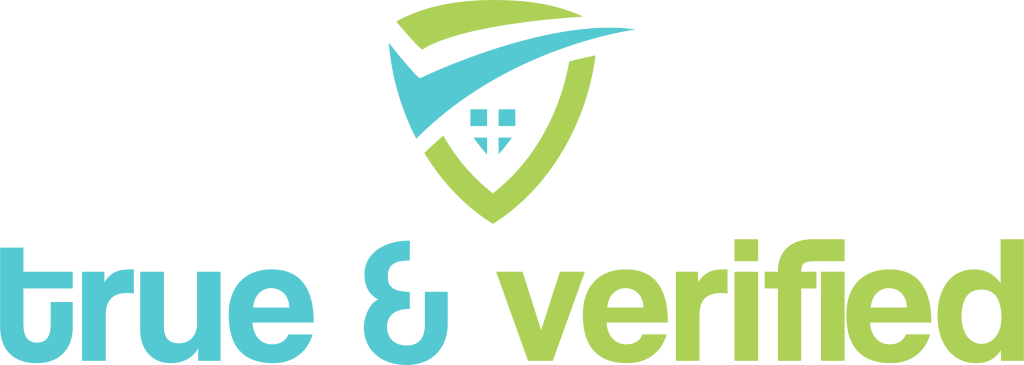
by mrshawon012@gmail.com | Oct 25, 2022 | Blog
Synthetic or ghost identities. If you’re a property manager, it’s important to be on the lookout for them. Tenants with synthetic ID’s often fail to pay rent, damage property, and cause other problems for landlords. So, what is a synthetic ID? Keep reading to find out.
What is a Synthetic ID?
A synthetic identity is a combination of real and fake information that’s used to create a new identity. The fake information can be anything from a made-up name to a fabricated Social Security number. The real information is usually stolen from unsuspecting victims, like children or the elderly. Once the Synthetic ID is created, it can be used to open new lines of credit, apply for loans, and rent apartments—basically, anything that requires an ID in order to do.
How Can You Spot a Synthetic ID?
There are several things that you can look for if you suspect that a tenant is using a synthetic identity. One of the first things you should do is run a background check. If the tenant has multiple addresses listed, that’s a red flag. Another thing to look for is inconsistency in the information provided—for example, if their birthdate doesn’t match up with the one on their driver’s license. Finally, if the information on their application doesn’t match up with what you find when you search for them online, that’s another sign that they may be using a synthetic identity.
Conclusion: If you’re a property manager, it’s important to be on the lookout for synthetic identities—also known as ghost identities. Tenants with synthetic ID’s often fail to pay rent, damage property, and cause other problems for landlords. There are several things that you can look for if you suspect that a tenant is using a synthetic identity, like running a background check or checking for inconsistency in the information provided. If you have any suspicions that a tenant may be using a synthetic identity, it’s always best to err on the side of caution and investigate further

by mrshawon012@gmail.com | Oct 25, 2022 | Blog
A Credit Privacy Number (CPN) is a nine-digit number that is used in place of a Social Security Number (SSN). CPNs are sometimes marketed as a way to improve credit scores or “protect” one’s identity. But is using a CPN actually a crime? In short, the answer is yes.
It’s important to understand how CPNs are obtained. Oftentimes, people who use CPNs have either been convicted of a crime or have filed for bankruptcy. As such, they may have bad credit. In order to get around this, they may purchase a “clean” CPN from someone else—usually for a few hundred dollars.
For individuals, using a CPN in place of an SSN is considered fraud. Not only that, but it can also lead to serious consequences like jail time and heavy fines.
Using a Credit Privacy Number (CPN) is definitely a crime. If you’re caught using one in place of your Social Security Number, you could face steep penalties like jail time and heavy fines. So, if you’re thinking about using a CPN, we strongly advise against it. Your best bet is to just use your SSN—it may not be perfect, but it’s the legal way to go about things.

by mrshawon012@gmail.com | Oct 25, 2022 | Blog
A data breach occurs when an unauthorized person gains access to sensitive, confidential, or protected information. This information can include but is not limited to credit card numbers, social security numbers, driver’s license numbers, medical records, and bank account information. When this type of information falls into the wrong hands, it can be used to create a synthetic identity.
A synthetic identity is a fraudulent identity that uses a combination of real and fake information. The goal of creating a synthetic identity is to establish creditworthiness so that the fraudster can take out loans, open lines of credit, and even get a job—essentially commit financial fraud.
In this blog post, we’ll discuss how data breaches lead to synthetic identities and what steps property managers can take to protect their residents from becoming victims of this type of fraud.
How Data Breaches Lead to Synthetic Identities
As we mentioned above, a data breach occurs when an unauthorized person gains access to sensitive information. This information is then sold on the black market where it can be used to create a synthetic identity.
One way that fraudsters create synthetic identities is by using stolen social security numbers (SSNs) to apply for credit cards and other lines of credit. With access to these lines of credit, they can rack up debt in the victim’s name and then default on the payments, ruining the victim’s credit score. In some cases, the fraudster will use the victim’s information to open new utility accounts or even get a job—all without the victim’s knowledge or consent.
Another way that data breaches lead to synthetic identities is by combining real and fake information to create a new identity. For example, a fraudster may use their own name but pair it with a made-up birthdate and address. With this new identity, they can apply for credit cards and other lines of credit—and again rack up debt in someone else’s name.
The Impact of Synthetic Identity Fraud on Property Managers
Synthetic identity fraud can have a significant impact on property managers—especially if the property manager requires their residents to undergo a background check before moving in. That’s because as part of the background check process, property managers typically pull residents’ credit reports. If a resident has been the victim of synthetic identity fraud, their credit report will reflect this and they may be denied rental approval as a result.
What Steps Can Property Managers Take To Protect Their Residents From Synthetic Identity Fraud?
Fortunately, there are steps that property managers can take to protect their residents from synthetic identity fraud:
1) Educate your residents about data breaches and how they can lead to synthetic identities: As we mentioned above, one way that fraudsters create synthetic identities is by using stolen social security numbers (SSNs) to apply for credit cards and other lines of credit. By educating your residents about data breaches and how they can lead to synthetic identities, you can help them protect themselves from becoming victims of this type of fraud.
2) Require your residents to undergo regular credit checks: Another way that you can protect your residents from synthetic identity fraud is by requiring them to undergo regular credit checks—preferably every six months. This will help you catch any red flags early on so that you can take appropriate action
3) Pull your residents’ credit reports yourself: In addition to requiring your residents to undergo regular credit checks, you should also pull their credit reports yourself on a regular basis—preferably every six months as well. By pulling your residents’ reports yourself, you can avoid any potential delays that might occur if you were waiting for your residents to provide you with their reports. And if you do find any red flags, you can take appropriate action right away rather than waiting for your resident to discover the issue themselves.
4) Use a Resident Shield plan: Resident Shield is designed specifically for property managers who want to protect their residents from becoming victims of identity theft—including synthetic identity fraud. With Resident Shield in place, you can rest assured knowing that your residents are protected against this growing threat. Contact us today for more information about our Resident Shield plans!
5) Have all applicants sign an “Identity Theft Protection Acknowledgement Form” prior to moving in: Finally, another way that you can protect your residents from synthetic identity fraud is by having all applicants sign an “Identity Theft Protection Acknowledgement Form” prior to moving in which requires them to acknowledge that they understand the risks associated with sharing their personal information with others—including potential landlords or property managers. This form also requires applicants to agree not hold you responsible should they become victims of identity theft while living at your property.
While there’s no guarantee that your residents will never become victims of synthetic identify fraud—or any other type of identity theft for that matter—taking steps like those outlined above will help reduce the risk significantly!

by mrshawon012@gmail.com | Oct 25, 2022 | Blog
What is a Data Breach?
A data breach is when an unauthorized person gains access to confidential information. This can be done through hacking, phishing, or simply taking advantage of security vulnerabilities. Once the breach has occurred, the attacker can then use the stolen information for identity theft, financial fraud, or other malicious purposes.
Why are Data Breaches on the Rise?
There are a number of factors that have contributed to the rise in data breaches. First and foremost is the increase in internet usage. More and more people are going online to do everything from banking to shopping to paying their bills. This increase in activity has made it a more attractive target for hackers. Additionally, the sheer amount of data that businesses collect has grown exponentially in recent years. This gives hackers more opportunities to find a way in. Finally, many businesses still don’t have adequate security measures in place to protect their data. This leaves them vulnerable to attack.
What Can You Do to Protect Yourself?
There are a number of things you can do to protect yourself from data breaches. First and foremost, you need to have strong security measures in place. This includes things like firewalls, intrusion detection systems, and encryption. Additionally, you should train your employees on best security practices and make sure they’re aware of the dangers of clicking on email links or opening attachments from unknown senders. Finally, you should keep an eye on your credit report and monitor for any suspicious activity.
Conclusion: Data breaches are becoming increasingly common and pose a serious threat to businesses of all sizes. Property managers need to be especially vigilant as they deal with sensitive information on a daily basis. By taking steps to improve security and train employees on best practices, you can help reduce the risk of being targeted by hackers.

by mrshawon012@gmail.com | Oct 20, 2022 | Blog
Frankenstein’s Monster and Synthetic Identities: What Landlords Need to Know
As a landlord, you’re always on the lookout for potential tenants who might cause you problems down
the road. You might think you’ve gotten pretty good at spotting red flags, but there’s one type of tenant
that can be difficult to identify: the synthetic identity.
Synthetic identities are created when someone combines real and fake information to create a new
identity. This can be done for a variety of reasons, but synthetic identities are often used by criminals to
commit fraud. For example, a synthetic identity might be used to open a new credit card account and
run up a huge balance that the real person behind the identity will never have to pay back or even to
apply for a lease of an apartment or house.
How Synthetic Identities Are Similar to Frankenstein’s Monster
While synthetic identities might not be quite as horrifying as Frankenstein’s monster, there are some
similarities between the two. Like Frankenstein’s monster, synthetic identities are often created with
the intention of causing harm. Also, like Frankenstein’s monster, synthetic identities can be very difficult
to stop once they’ve been created. Just as Frankenstein’s monster went on a rampage despite
Frankenstein’s best efforts to control it, synthetic identities can wreak havoc on your finances and your
reputation as a landlord if you’re not careful.
How Landlords Can Protect Themselves from Synthetic Identities
The best way to protect yourself from synthetic identities is to screen your tenants carefully. This means
requiring all potential tenants to provide several forms of identification, such as a driver’s license,
passport, or birth certificate. You should also run a credit check on all potential tenants (even if they
don’t have any credit history) and verify their employment status. By taking these precautions, you’ll be
able to weed out most synthetic identities before they have a chance to cause any damage.
While synthetic identities can be difficult to spot, there are some steps you can take as a landlord to
protect yourself from them. By screening potential tenants carefully and running credit checks, you can
minimize the chances of renting to someone with a synthetic identity. So don’t be afraid to ask for
additional documentation from your potential tenants—it could end up saving you a lot of headaches
(and money) in the long run.

by mrshawon012@gmail.com | Oct 20, 2022 | Blog
As a landlord or property management professional, you know that there are a lot of people out there
who are looking to commit fraud. Unfortunately, the rental market has become a hotbed for fraudsters
in recent years. Every day, we hear stories about landlords who have been taken advantage of by
fraudulent applicants.
But it doesn’t have to be this way! There are steps you can take to protect yourself from fraudulent
applicants. In this blog post, we’ll show you how our platform can help you identify fraudulent
applicants so you can avoid being the next victim of rental fraud.
What is Rental Fraud?
Rental fraud is when someone applies for a rental property using false or misleading information. Some
common examples of rental fraud include:
• Using a fake ID or Social Security number
• Providing false employment information
• Listing a false income
• falsely claiming to be a student
• Using someone else’s identity
• Submitting false references
• Committing identify theft
Fraudulent applicants often target landlords who are inexperienced or who are willing to overlook red
flags to fill their vacancies quickly. But no matter how experienced you are, it’s always possible to fall
victim to rental fraud. That’s why it’s so important to screen your applicants thoroughly and to use a
trusted platform like ours to help you weed out the bad apples.
How Our Platform Can Help
Our platform is designed to help landlords and property management professionals quickly and easily
identify fraudulent applicants. We do this by running each applicant’s information through our database
of over 500 million records. We also verify each applicant’s employment history and run a criminal
background check. If we find anything that raises a red flag, we’ll let you know so you can decide
whether or not to move forward with the application.
Don’t take chances when it comes to your rental properties! Use our platform to screen your applicants
and avoid becoming the next victim of rental fraud. With our help, you can breathe easier knowing that
your property is in good hands.





